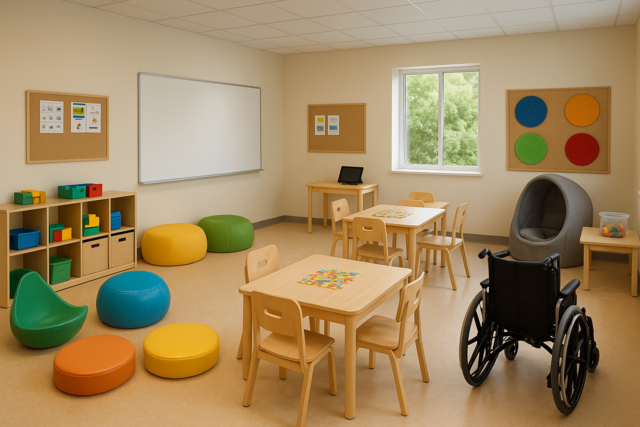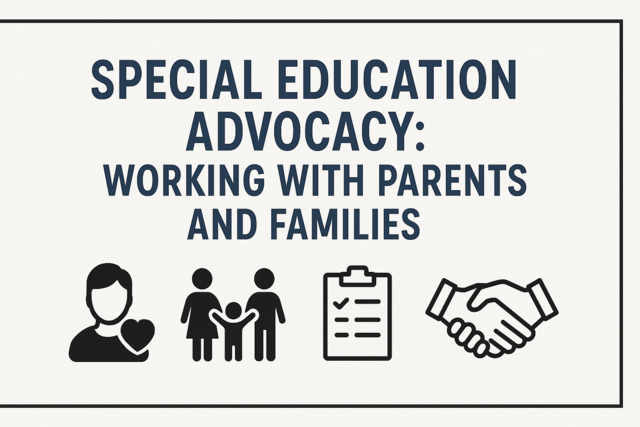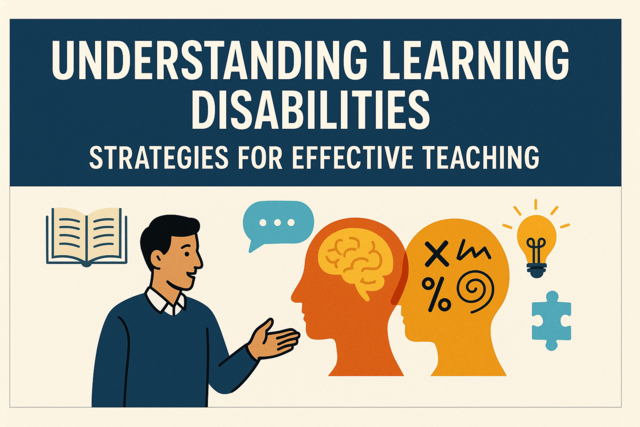Online Class: Family Engagement and Support Strategies in Special Education

-
15Lessons
-
22Exams &
Assignments -
7Hours
average time -
0.7CEUs
Course Description
In a world where education is often viewed as a solitary pursuit, the journey of special education shines a light on the profound truth that no child, no family stands alone. Welcome to "Family Engagement and Support Strategies in Special Education," a transformative course designed to revolutionize the way you perceive and participate in the educational landscape. This isn't just an opportunity to gain insight; it's an invitation to be an advocate, a partner, a beacon of positive change for students and families navigating the intricacies of special education.
Imagine the moment you first understand why a child's success in school isn't just shaped by their hours spent in the classroom but is profoundly influenced by home dynamics, family culture, and the bonds forged between educators and families. In this course, you will embark on a journey that not only opens your eyes to these invaluable influences but also equips you with the tools to actively shape them.
Picture yourself as a bridge builder, connecting hearts and minds. You'll learn how to weave threads of empathy and understanding into robust networks of support, where families feel heard, respected, and empowered. These connections aren't built on rigid protocols, but on trust and shared vision, fostering environments where both children and their families thrive. You'll leave each module with a deeper appreciation for the cultural narratives that families bring and the confidence to engage with these stories in meaningful ways.
And it's in these narratives that real transformation occurs. There's an undeniable power in knowing how to tailor your communication to resonate personally within diverse cultural landscapes. This course isn't about generic strategies but about personalized, heartfelt engagement that changes lives. By the end, you'll possess the rare ability to see beyond educational settings—to understand the larger social fabric and contribute to a more inclusive, equitable world.
Technology stands at the forefront of modern education, and you'll harness its potential like never before. Envision a future where digital platforms don't just connect but create rich, interactive partnerships between families and educators. You'll utilize innovations in technology not merely for information but for engagement, advocacy, and empowerment. Discover how assistive technology not only supports students but liberates them, granting independence and fostering genuine learning experiences.
But this isn't just about technology; it's about human connection. You'll explore the nuances of engaging every member of a family, understanding, for instance, the impactful roles fathers play in special education—a narrative too often overlooked. Through this course, you will learn to facilitate open, jargon-free discussions, welcoming all voices to the table in a way that impacts real change, bolstering advocacy, and building a community that stands strong together.
We know the education system can feel labyrinthine, with policies like IDEA, ADA, and FERPA often acting as guides yet sometimes as barriers. With us, you'll journey through these regulations with clarity, emerging as an advocate well-versed in not just understanding these policies but in effectively utilizing them to champion every child's rights.
This course is an exploration, a quest for change, one that demands a commitment to cultural competence, empathy, and proactive engagement. But it also promises unparalleled rewards—the knowledge that you are not just part of a child's educational process, but a pivotal player in altering their life's trajectory.
Are you ready to transform not just your approach, but the very world of special education? Join us in this course where the profound and the practical meet, and where together, we can redefine possibilities for families everywhere. This is more than a course; it's a movement, and it begins with you. Secure your place today and start the journey to becoming the change-maker you've always aspired to be. It's time to engage, to inspire, to support. Welcome to a community united by a common goal: exceptional, inclusive education for every child.
- Business
- Business Ethics Courses
- Harassment Prevention Courses
- Human Resources Certifications
- Management
- Aromatherapy Courses
- Caregiver Courses
- Career Development Courses
- Communications Courses
- Confidence and Self Esteem Courses
- Healing
- Human Anatomy Courses
- Medical Skills
- Health & Medicine
- Nutrition
- Marketing
- Microsoft Office Certification Courses
- Life Coaching Courses
- Self-Improvement
- Small Business Certifications
- Safety
- Writing Improvement
- Business Writing Courses
Course Lessons
Lesson 1. Understanding Family Influences in Special Education
 Review Practice Worksheet: Lesson-1-Downloadable-17507.pdf
Review Practice Worksheet: Lesson-1-Downloadable-17507.pdf Lesson discussions: Reasons for Taking this Course
Lesson discussions: Reasons for Taking this Course Assessment: Lesson 1 Review Exam
Assessment: Lesson 1 Review Exam
Lesson 2. Building Bridges: Enhancing Holistic Development in Special Education
 Review Practice Worksheet: Lesson-2-Activity-17509.pdf
Review Practice Worksheet: Lesson-2-Activity-17509.pdf Complete: Lesson 2 Activity
Complete: Lesson 2 Activity Assessment: Lesson 2 Review Exam
Assessment: Lesson 2 Review Exam
Lesson 3. Culturally Tailored Communication in Diverse Educational Settings
 Review Practice Worksheet: Lesson-3-WorkSheet-17511.pdf
Review Practice Worksheet: Lesson-3-WorkSheet-17511.pdf Assessment: Lesson 3 Review Exam
Assessment: Lesson 3 Review Exam
Lesson 4. Building Communication and Trust with Families
 Review Practice Worksheet: Lesson-4-Downloadable-17513.pdf
Review Practice Worksheet: Lesson-4-Downloadable-17513.pdf Complete: Lesson 4 Activity
Complete: Lesson 4 Activity Assessment: Lesson 4 Review Exam
Assessment: Lesson 4 Review Exam
Lesson 5. Harnessing Family Power: A Deep Dive into Advocacy in Special Education
 Review Practice Worksheet: Lesson-5-WordSearch-17515.pdf
Review Practice Worksheet: Lesson-5-WordSearch-17515.pdf Complete: Lesson 5 Activity
Complete: Lesson 5 Activity Assessment: Lesson 5 Review Exam
Assessment: Lesson 5 Review Exam
Lesson 6. Navigating Cultural Landscapes: Engaging Families in Education
 Review Practice Worksheet: Lesson-6-HomeWork-17517.pdf
Review Practice Worksheet: Lesson-6-HomeWork-17517.pdf Complete: Lesson 6 Activity
Complete: Lesson 6 Activity Assessment: Lesson 6 Review Exam
Assessment: Lesson 6 Review Exam
Lesson 7. Tech Empowerment in Special Education
 Review Practice Worksheet: Lesson-7-HomeWork-17519.pdf
Review Practice Worksheet: Lesson-7-HomeWork-17519.pdf Complete: Lesson 7 Activity
Complete: Lesson 7 Activity Assessment: Lesson 7 Review Exam
Assessment: Lesson 7 Review Exam
Lesson 8. Inclusive Education: Integrating Family and Community Support
 Review Practice Worksheet: Lesson-8-Activity-17521.pdf
Review Practice Worksheet: Lesson-8-Activity-17521.pdf Complete: Lesson 8 Activity
Complete: Lesson 8 Activity Assessment: Lesson 8 Review Exam
Assessment: Lesson 8 Review Exam
Lesson 9. Fathers in Special Education: Transformative Roles and Engagement
 Review Practice Worksheet: Lesson-9-Downloadable-17523.pdf
Review Practice Worksheet: Lesson-9-Downloadable-17523.pdf Complete: Lesson 9 Activity
Complete: Lesson 9 Activity Assessment: Lesson 9 Review Exam
Assessment: Lesson 9 Review Exam
Lesson 10. Understanding IDEA, 504, ADA, and FERPA
 Review Practice Worksheet: Lesson-10-Activity-17525.pdf
Review Practice Worksheet: Lesson-10-Activity-17525.pdf Assessment: Lesson 10 Review Exam
Assessment: Lesson 10 Review Exam
Lesson 11. Collaborative Journeys: Family Dynamics and Educational Success
 Review Practice Worksheet: Lesson-11-WordSearch-17527.pdf
Review Practice Worksheet: Lesson-11-WordSearch-17527.pdf Assessment: Lesson 11 Review Exam
Assessment: Lesson 11 Review Exam
Lesson 12. Diverse Strategies to Empower Families in Education
 Review Practice Worksheet: Lesson-12-WorkSheet-17529.pdf
Review Practice Worksheet: Lesson-12-WorkSheet-17529.pdf Assessment: Lesson 12 Review Exam
Assessment: Lesson 12 Review Exam
Lesson 13. Transformative Journeys: Navigating Milestones in Special Education
 Review Practice Worksheet: Lesson-13-HomeWork-17530.pdf
Review Practice Worksheet: Lesson-13-HomeWork-17530.pdf Assessment: Lesson 13 Review Exam
Assessment: Lesson 13 Review Exam
Lesson 14. Understanding Diverse Family Structures and Communication in Special Ed
 Review Practice Worksheet: Lesson-14-Activity-17532.pdf
Review Practice Worksheet: Lesson-14-Activity-17532.pdf Assessment: Lesson 14 Review Exam
Assessment: Lesson 14 Review Exam
Lesson 15. Impacts of Income Inequality on Education
 Review Practice Worksheet: Lesson-15-WorkSheet-17534.pdf
Review Practice Worksheet: Lesson-15-WorkSheet-17534.pdf Lesson discussions: End of Course Poll; Course Comments
Lesson discussions: End of Course Poll; Course Comments Assessment: Lesson 15 Review Exam
Assessment: Lesson 15 Review Exam
Learning Outcomes
- Demonstrate the ability to develop inclusive communication strategies that foster trust and collaboration between families and educators, focusing on empathy and cultural competence.
- Recognize and describe the impact of diverse family dynamics on engagement with special education services, considering cultural, linguistic, and socioeconomic factors.
- Demonstrate effective communication strategies between educators and parents by outlining steps to regularly exchange updates on a child's progress and align educational goals.
- Identify the role of parents in special education by describing how they advocate and collaborate with educators to develop customized educational programs for their child.
- Define culturally responsive communication and its importance in enhancing family engagement strategies in special education by tailoring communication methods to the diverse cultural backgrounds of families.
- Demonstrate active listening skills by participating in role-play scenarios to acknowledge and respond to diverse family's values, beliefs, and expectations effectively during IEP meetings.
- Demonstrate cultural competence by adapting educational strategies to respect and align with diverse family values and traditions.
- Identify and implement effective communication strategies to enhance collaboration between families and educators in special education environments.
- Identify and describe effective communication strategies that build strong partnerships between families and educators in special education.
- Recognize the role of family advocacy in ensuring individualized needs are met within special education settings.
- Design and implement culturally responsive strategies to enhance family engagement and collaboration, focusing on specific cultural values and communication needs within special education settings.
- Demonstrate an understanding of diverse cultural values and beliefs within family dynamics to create inclusive and supportive educational environments in special education contexts.
- Recognize appropriate technology tools to enhance communication and engagement between educators and families in special education.
- Demonstrate mastery of lesson content at levels of 70% or higher.
Additional Course Information

- Document Your Lifelong Learning Achievements
- Earn an Official Certificate Documenting Course Hours and CEUs
- Verify Your Certificate with a Unique Serial Number Online
- View and Share Your Certificate Online or Download/Print as PDF
- Display Your Certificate on Your Resume and Promote Your Achievements Using Social Media

Related Courses
-
 4 hours
0.4 CEUs
Energy Medicine: Harnessing Your Body's Power
+ More Info
4 hours
0.4 CEUs
Energy Medicine: Harnessing Your Body's Power
+ More Info
-
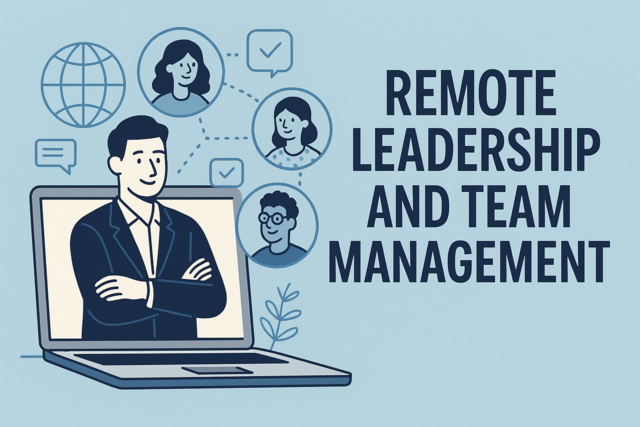 6 hours
0.6 CEUs
Remote Leadership and Team Management
+ More Info
6 hours
0.6 CEUs
Remote Leadership and Team Management
+ More Info
-
 6 hours
0.6 CEUs
Beyond the Runway: Influencing Trends in Modern Luxury
+ More Info
6 hours
0.6 CEUs
Beyond the Runway: Influencing Trends in Modern Luxury
+ More Info
-
 3 hours
0.3 CEUs
Dapper & Distinguished: Men's Fashion Essentials
+ More Info
3 hours
0.3 CEUs
Dapper & Distinguished: Men's Fashion Essentials
+ More Info
-
 3 hours
0.3 CEUs
Office Staff Productivity Boosters
+ More Info
3 hours
0.3 CEUs
Office Staff Productivity Boosters
+ More Info
-
 4 hours
0.4 CEUs
Sustainable Style: Modern Luxury with a Conscience
+ More Info
4 hours
0.4 CEUs
Sustainable Style: Modern Luxury with a Conscience
+ More Info
-
 7 hours
0.7 CEUs
Negotiation and Persuasion in Business
+ More Info
7 hours
0.7 CEUs
Negotiation and Persuasion in Business
+ More Info
-
 4 hours
0.4 CEUs
Beyond Words: The Silent Language of Relationships
+ More Info
4 hours
0.4 CEUs
Beyond Words: The Silent Language of Relationships
+ More Info
-
 3 hours
0.3 CEUs
Exploring Parallel Universes
+ More Info
3 hours
0.3 CEUs
Exploring Parallel Universes
+ More Info
-
 4 hours
0.4 CEUs
The Use of Analytics in Education
+ More Info
4 hours
0.4 CEUs
The Use of Analytics in Education
+ More Info
-
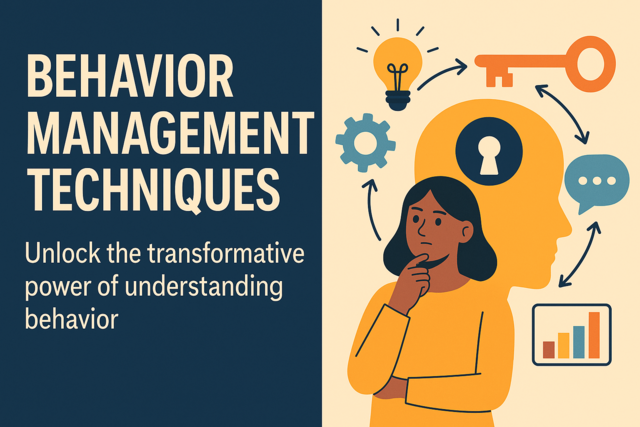 6 hours
0.6 CEUs
Behavior Management Techniques
+ More Info
6 hours
0.6 CEUs
Behavior Management Techniques
+ More Info
-
 5 hours
0.5 CEUs
Inclusive Sports and Physical Education for Special Needs
+ More Info
5 hours
0.5 CEUs
Inclusive Sports and Physical Education for Special Needs
+ More Info
-
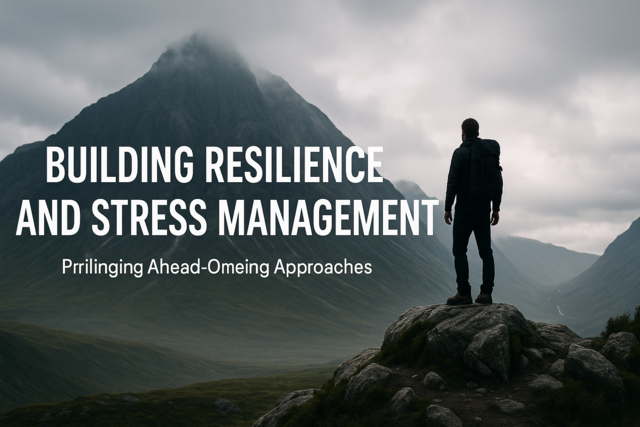 5 hours
0.5 CEUs
Building Resilience and Stress Management
+ More Info
5 hours
0.5 CEUs
Building Resilience and Stress Management
+ More Info
-
 5 hours
0.5 CEUs
Bridging Generational Gaps: Understanding Family Dynamics
+ More Info
5 hours
0.5 CEUs
Bridging Generational Gaps: Understanding Family Dynamics
+ More Info
-
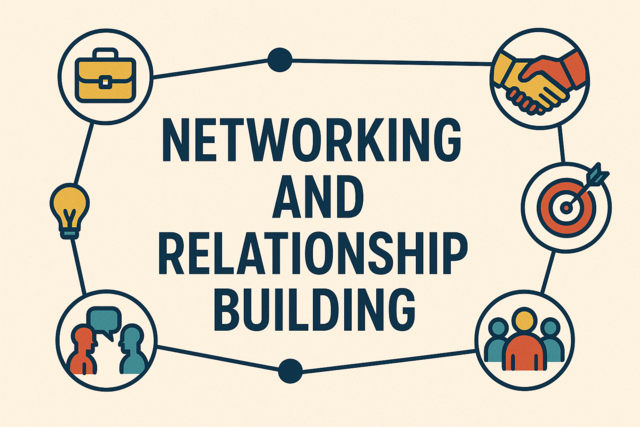 7 hours
0.7 CEUs
Networking and Relationship Building
+ More Info
7 hours
0.7 CEUs
Networking and Relationship Building
+ More Info
-
 7 hours
0.7 CEUs
Mysteries of the Unexplained
+ More Info
7 hours
0.7 CEUs
Mysteries of the Unexplained
+ More Info
-
 5 hours
0.5 CEUs
Advanced Communication Skills for the Workplace
+ More Info
5 hours
0.5 CEUs
Advanced Communication Skills for the Workplace
+ More Info
-
 4 hours
0.4 CEUs
Implementing Universal Design for Learning (UDL)
+ More Info
4 hours
0.4 CEUs
Implementing Universal Design for Learning (UDL)
+ More Info
-
 7 hours
0.7 CEUs
Vintage Visions: Integrating Past Styles in Modern Luxury
+ More Info
7 hours
0.7 CEUs
Vintage Visions: Integrating Past Styles in Modern Luxury
+ More Info
-
 5 hours
0.5 CEUs
Promoting Social Skills in Special Education
+ More Info
5 hours
0.5 CEUs
Promoting Social Skills in Special Education
+ More Info
-
 3 hours
0.3 CEUs
Effective Teaching Strategies for Diverse Classrooms
+ More Info
3 hours
0.3 CEUs
Effective Teaching Strategies for Diverse Classrooms
+ More Info
-
 5 hours
0.5 CEUs
Building Bridges: Techniques for Intergenerational Understanding
+ More Info
5 hours
0.5 CEUs
Building Bridges: Techniques for Intergenerational Understanding
+ More Info
-
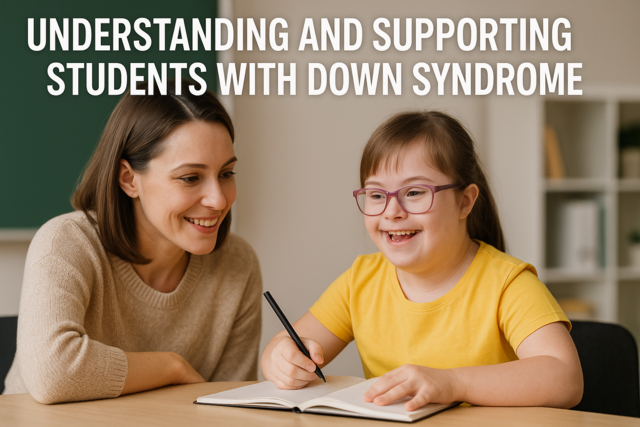 3 hours
0.3 CEUs
Understanding and Supporting Students with Down Syndrome
+ More Info
3 hours
0.3 CEUs
Understanding and Supporting Students with Down Syndrome
+ More Info
-
 3 hours
0.3 CEUs
Budgeting and Financial Planning
+ More Info
3 hours
0.3 CEUs
Budgeting and Financial Planning
+ More Info
-
 5 hours
0.5 CEUs
STEAM: Integrating the Arts with STEM
+ More Info
5 hours
0.5 CEUs
STEAM: Integrating the Arts with STEM
+ More Info
-
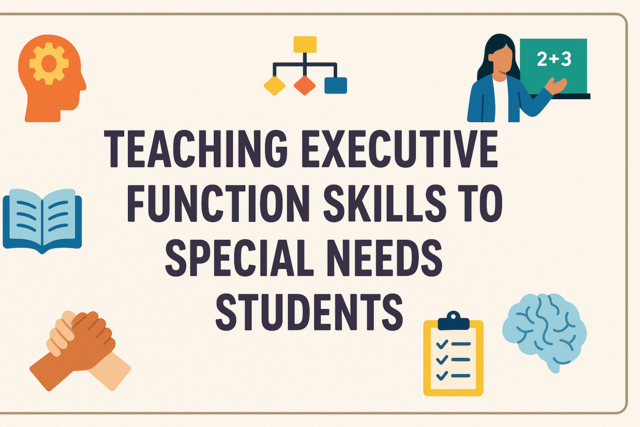 3 hours
0.3 CEUs
Teaching Executive Function Skills to Special Needs Students
+ More Info
3 hours
0.3 CEUs
Teaching Executive Function Skills to Special Needs Students
+ More Info
-
 3 hours
0.3 CEUs
High-Street to Haute: The Journey to Becoming Fashionable
+ More Info
3 hours
0.3 CEUs
High-Street to Haute: The Journey to Becoming Fashionable
+ More Info
-
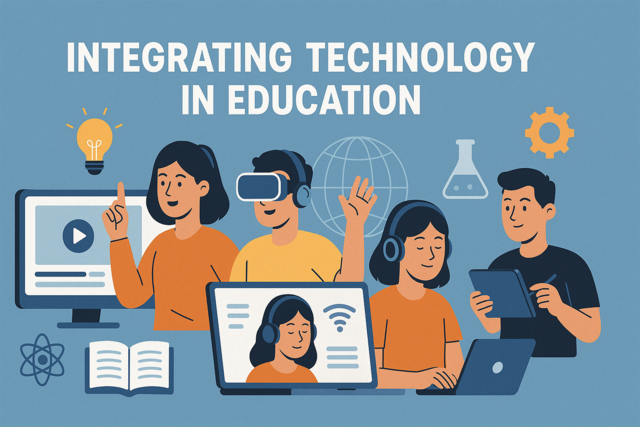 7 hours
0.7 CEUs
Integrating Technology in Education
+ More Info
7 hours
0.7 CEUs
Integrating Technology in Education
+ More Info
-
 5 hours
0.5 CEUs
The Harmony Hub: Fostering Connection in Busy Lives
+ More Info
5 hours
0.5 CEUs
The Harmony Hub: Fostering Connection in Busy Lives
+ More Info
-
 4 hours
0.4 CEUs
Narcissistic Loops: Breaking the Cycle of Self-Absorption
+ More Info
4 hours
0.4 CEUs
Narcissistic Loops: Breaking the Cycle of Self-Absorption
+ More Info
-
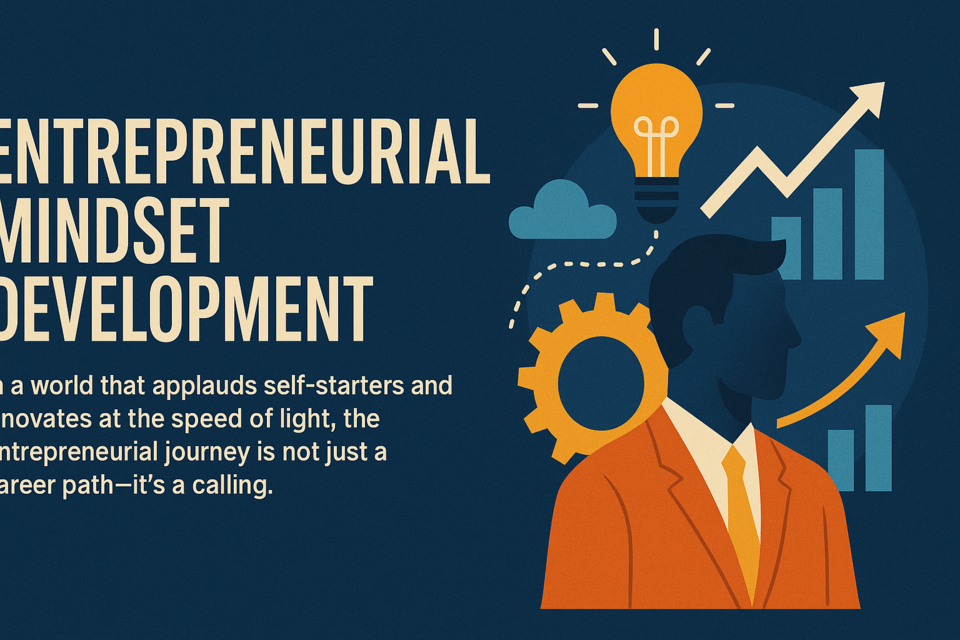 7 hours
0.7 CEUs
Entrepreneurial Mindset Development
+ More Info
7 hours
0.7 CEUs
Entrepreneurial Mindset Development
+ More Info
-
 5 hours
0.5 CEUs
Coaching and Mentoring Skills
+ More Info
5 hours
0.5 CEUs
Coaching and Mentoring Skills
+ More Info
-
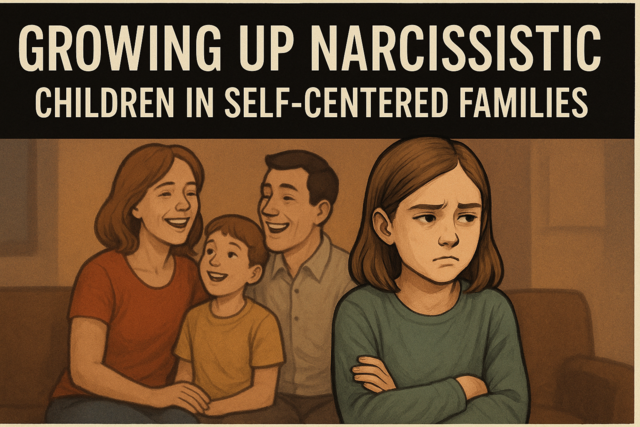 3 hours
0.3 CEUs
Growing Up Narcissistic: Children in Self-Centered Families
+ More Info
3 hours
0.3 CEUs
Growing Up Narcissistic: Children in Self-Centered Families
+ More Info
-
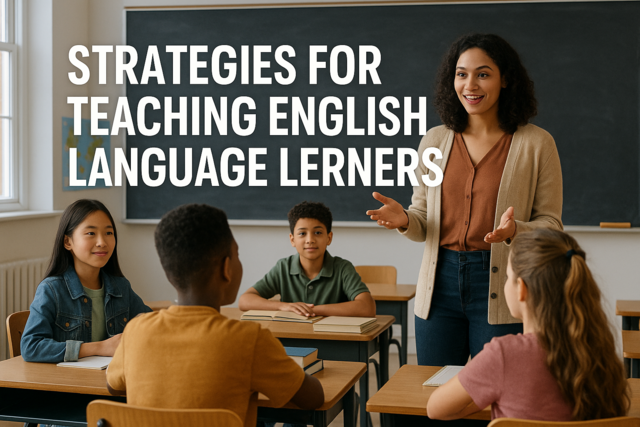 4 hours
0.4 CEUs
Strategies for Teaching English Language Learners
+ More Info
4 hours
0.4 CEUs
Strategies for Teaching English Language Learners
+ More Info
-
 7 hours
0.7 CEUs
Cultural Perspectives on Trauma: Understanding Global Variations
+ More Info
7 hours
0.7 CEUs
Cultural Perspectives on Trauma: Understanding Global Variations
+ More Info
-
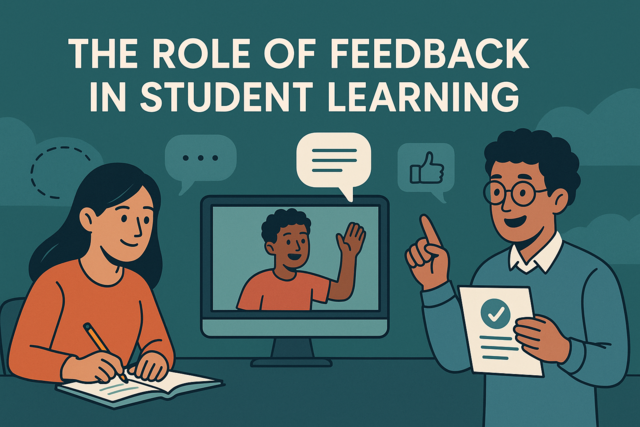 4 hours
0.4 CEUs
The Role of Feedback in Student Learning
+ More Info
4 hours
0.4 CEUs
The Role of Feedback in Student Learning
+ More Info
-
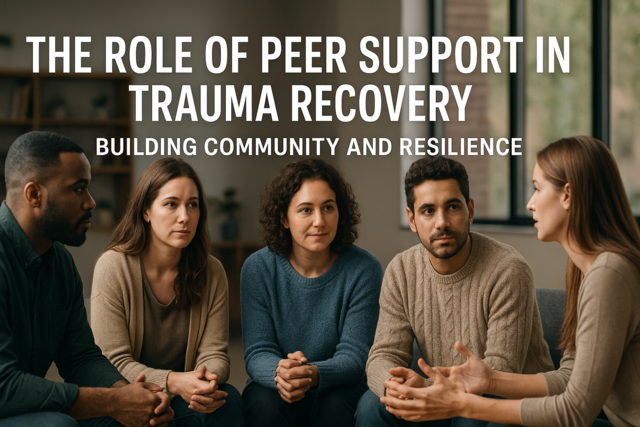 3 hours
0.3 CEUs
The Role of Peer Support in Trauma Recovery: Building Community and Resilience
+ More Info
3 hours
0.3 CEUs
The Role of Peer Support in Trauma Recovery: Building Community and Resilience
+ More Info
-
 4 hours
0.4 CEUs
Rising Above Resentment: Healing Through Forgiveness
+ More Info
4 hours
0.4 CEUs
Rising Above Resentment: Healing Through Forgiveness
+ More Info
-
 7 hours
0.7 CEUs
Harmony at Home: Techniques for Peaceful Coexistence
+ More Info
7 hours
0.7 CEUs
Harmony at Home: Techniques for Peaceful Coexistence
+ More Info


